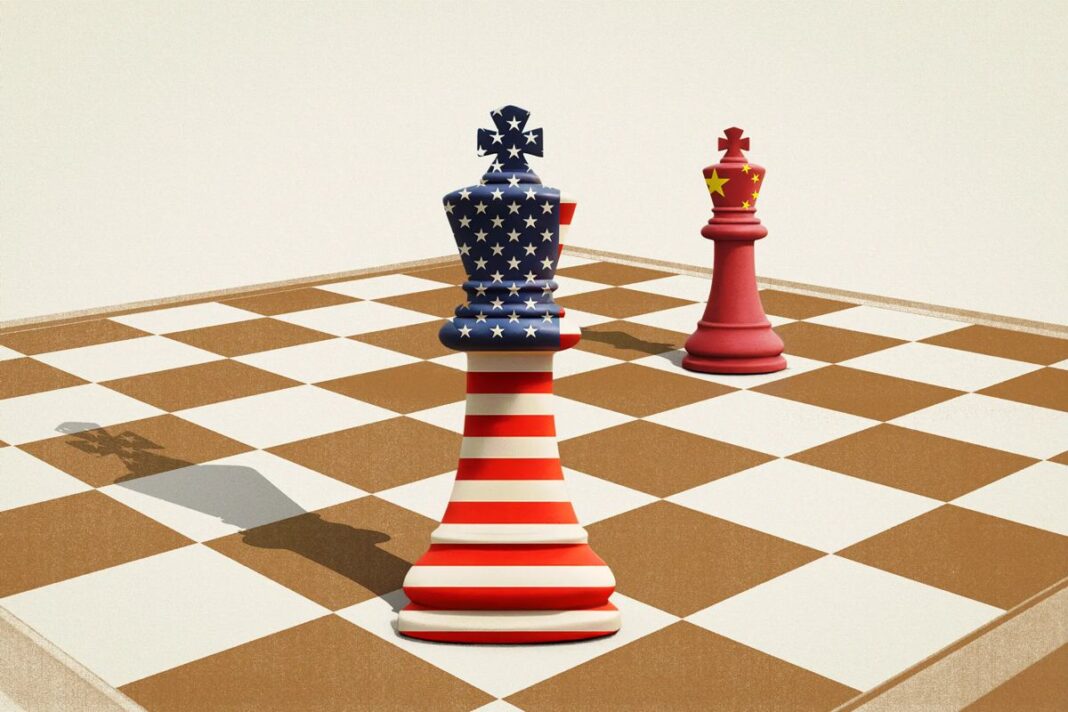NEW YORK CITY—President Donald Trump will take the international stage this week to address the U.N. General Assembly on Sept. 23 in New York City. The question of Palestinian statehood is expected to dominate this year’s meeting, with world leaders closely watching Trump’s speech, given his opposition to the proposal.On Sept. 21, the UK, Australia, Canada, and Portugal announced that they will formally recognize Palestinian statehood, joining nearly 150 countries that already have done so.
On Sept. 22, France and Saudi Arabia co-hosted a conference at which French President Emmanuel Macron announced France’s recognition of a Palestinian state. Macron earlier said that it is a necessary move to help end Israel’s conflict with the Hamas terrorist group that began with the latter’s Oct. 7, 2023, attack.
Other Western nations that were expected to follow suit ahead of the General Assembly included Andorra, Belgium, Luxembourg, Malta, and San Marino.
While the two-state solution is regaining momentum at the United Nations, the United States and Israel continue to reject the proposal.
Trump has made it clear that he disagrees with these decisions, White House press secretary Karoline Leavitt said during a press briefing on Sept. 22.
“These decisions are just more talk and not enough action from some of our friends and allies,” she said. “And I think you’ll hear [Trump] talk about that tomorrow at the U.N.”
Trump said on July 29 that supporting a two-state solution would effectively reward Hamas. He reiterated his opposition on Sept. 18 during a joint press conference with UK Prime Minister Keir Starmer during his state visit.
“I have a disagreement with the prime minister on that score—one of our few disagreements, actually,” Trump said of the UK’s plan to recognize Palestinian statehood.
“We have to remember October 7, one of the worst, most violent days in the history of the world.
“We have to have the hostages back immediately.”
The United States has denied entry visas to Palestinian Authority President Mahmoud Abbas and his delegation for this year’s General Assembly, citing national security concerns. The State Department blamed Palestinian leaders for the collapse of the Gaza cease-fire talks and for Hamas’s refusal to release its remaining Israeli hostages.
On Sept. 19, the U.N. General Assembly adopted a resolution allowing Abbas to address the assembly by pre-recorded video.
Banning a Palestinian leader is not unprecedented. In 1988, the Reagan administration, citing national security concerns, denied then-Palestine Liberation Organization Chairman Yasser Arafat a visa to enter the United States to address the General Assembly in New York.
UN Marks 80th Anniversary
This year’s meeting will mark the 80th anniversary of the U.N. and will be held under the theme: “Better together: 80 years and more for peace, development and human rights.”
The U.S. president has been a vocal critic of the international body, questioning its effectiveness in solving international conflicts. After winning office, he ordered the United States to pull out of or cut funding to multiple U.N. organizations.
“I’ve always felt that the U.N. has tremendous potential. It’s not living up to that potential right now. … It hasn’t for a long time,” Trump said on Feb. 4 while signing an executive order to withdraw the United States from the U.N. Human Rights Council and ban funding to the U.N. Relief and Works Agency.
“They’ve got to get their act together.”
The last time that Trump addressed the General Assembly from the same podium was in 2020, during the height of the COVID-19 pandemic. At the time, he called on the international community to hold China accountable for the outbreak of the virus in the city of Wuhan and for the subsequent cover-up.
“As we pursue this bright future, we must hold accountable the nation which unleashed this plague onto the world: China,” Trump said in 2020.
Since then, the conflicts in Ukraine and Gaza have taken center stage.
Trump is expected to highlight his achievements and his role in mediating global conflicts over the past eight months in his U.N. speech, according to Leavitt.
“The president will also touch upon how globalist institutions have significantly decayed the world order, and he will articulate his straightforward and constructive vision for the world,” she said.
The president will meet bilaterally with U.N. Secretary-General António Guterres, as well as the leaders of Ukraine, Argentina, and the European Union, Leavitt announced.
Later in the day, he will join a multilateral meeting with Qatar, Saudi Arabia, Indonesia, Turkey, Pakistan, Egypt, the United Arab Emirates, and Jordan. Following that, he is scheduled to attend a reception with more than 100 world leaders before returning to Washington.
By Emel Akan








